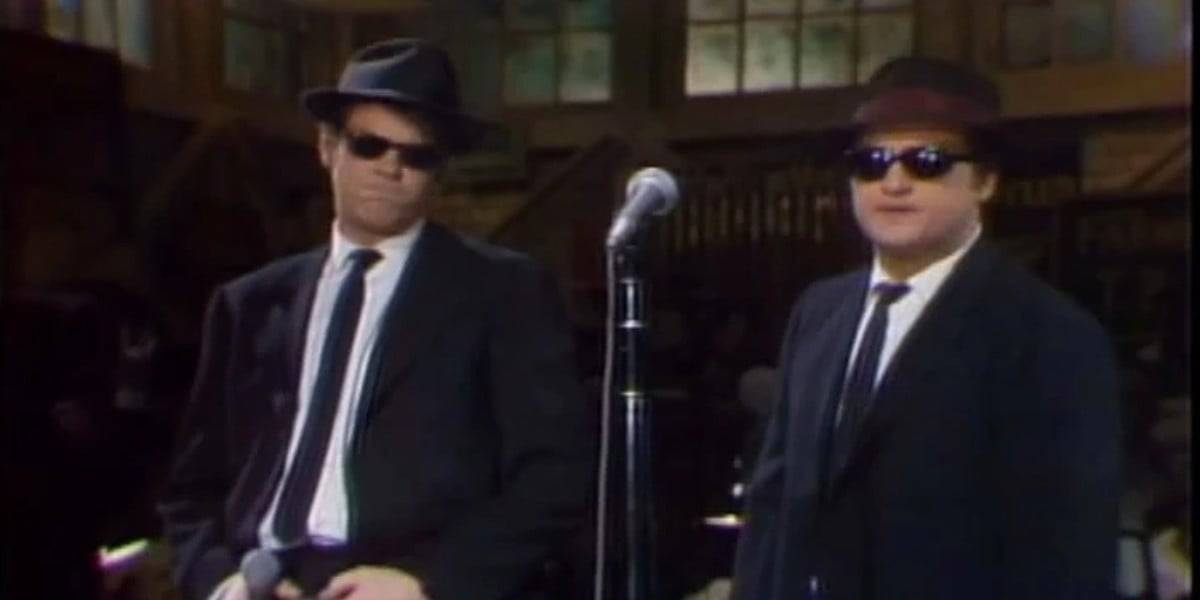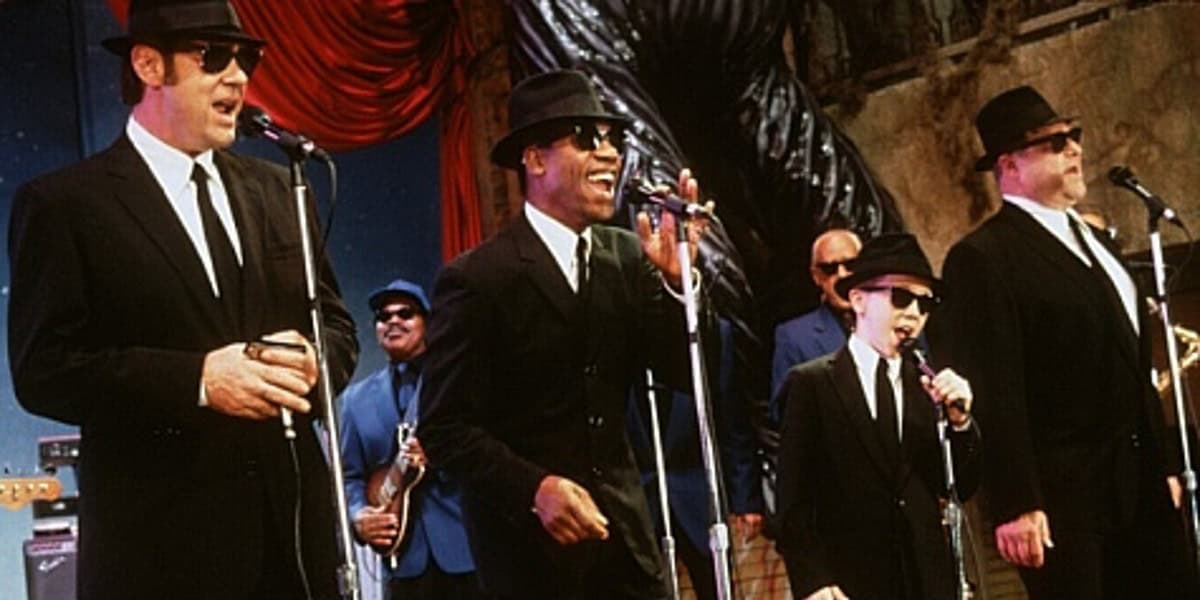Decades after his death, Saturday Night Live star John Belushi is still defending his most popular movie against accusations that it ripped off black culture.

The Blues Brothers (1980) starred John Belushi as “Joliet” Jake Blues and Dan Aykroyd as Elwood Blues, two adoptive brothers with a penchant for wearing black suits, hats, and sunglasses and playing blues music accompanied by a band of some of the most proficient musicians in American history.
The movie was based on an odd kind of musical act from Belushi and Aykroyd and became famous as a recurring segment on Saturday Night Live, the counter-culture sketch show that made both actors superstars in the 1970s. It was directed by John Landis and starred a huge number of musical stars, including James Brown, Cab Calloway, Aretha Franklin, Ray Charles and John Lee Hooker.
Related: Saturday Night Live Blasts Disneyland for “Gay” Attraction
Despite a famously tortured development process, The Blues Brothers was a huge box office hit, grossing $115 million (equivalent to $438 million in 2024) against a $27 million budget. Those are Marvel movie numbers, except instead of starring Iron Man, it was two deadpan weirdos playing Solomon Burke covers and dancing with 1930s jazz legend Cab Calloway.

However, the entire Blues Brothers concept, which has since spun off the confusingly titled 1998 movie Blues Brothers 2000, numerous albums, a stage musical, and a Universal Studios live show, has long been criticized as culturally appropriating traditionally Black American music. The discussion is…ongoing, to put it mildly.
Both John Belushi, who died of a drug overdose in 1982, and Dan Aykroyd have consistently pushed back against the idea that two White comedians becoming hugely successful by performing music created by (largely) Black musicians was a theft of black culture.
As recently as 202o, the Ghostbusters star told the Hollywood Reporter that the film was “anti-Nazi. It’s anti-racist. It venerates African American culture and recognizes African American performers and artists.”

Related: Op-Ed: Margot Robbie’s ‘Barbie’ Ripped off the Best ‘Saturday Night Live’ Sketch in Years
The Audible documentary Blues Brothers: The Arc of Gratitude recently revealed a 1979 interview with John Belushi by Soho Weekly News music critic Steve Bloom in which he defended the Blues Brothers concept against accusations that it had profited him as a White man over Black musicians.
BLOOM: “You see, there’s a long line of cases where white musicians play Black music and make money, while the Black musicians don’t make the money, supposedly.”
BELUSHI: “That’s not the purpose of the Blues Brothers. I say on the record, ‘Buy as many blues records as you can.’ [I] introduce my band, which is never done. I share the stage with each member of the group, which is never done. I have Danny Aykroyd, you know; we all split everything right down the middle. I give the people, artists parts of the album. I’m putting them in a movie, you know? Nobody believes me.”
While the band’s original lead singer may be long deceased, the Blues Brothers soldier on, often with replacements like brother Jim Belushi and actor John Goodman. At this point, the act is a cultural touchstone despite the debate over its racial connotations and politics. But even in death, John Belushi can’t get away from the accusations that his fandom of blues music may have crossed over into profiteering.
What do you say regarding the Blues Brothers and cultural appropriation?
